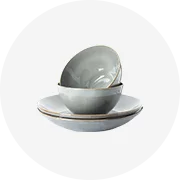















Mesh fences, a prominent category within the realm of perimeter security, offer a blend of durability and functionality. This type of fencing is crafted to meet various needs, ranging from residential garden barriers to robust security for industrial properties. Mesh fencing encompasses a variety of styles, including welded wire mesh fence, chain link fence privacy screen, and plastic mesh fencing, each serving distinct purposes while maintaining a common thread of versatility and reliability.
The applications of mesh fences are diverse, with each type serving a specific function. Welded wire fence is renowned for its strength and is commonly used in commercial settings for its robustness and low maintenance. For agricultural uses, poultry wire mesh and chicken wire fence are preferred choices, providing protection and containment for poultry and livestock. In residential areas, wire netting fence and plastic chicken wire are frequently selected for their ease of installation and aesthetic appeal.
Mesh fences are available in a variety of materials, each selected for its unique properties. Galvanized wire mesh is a popular option due to its resistance to rust and corrosion, making it suitable for harsh weather conditions. For those seeking a more refined finish, pvc coated mesh offers an additional layer of protection against the elements, as well as a sleek appearance. The construction of mesh fences can range from the simplicity of rolled wire fencing to the intricacy of wire mesh screen designs, catering to both security needs and aesthetic preferences.
The advantages of installing a mesh fence are manifold. Its design allows for eco-friendly options that do not obstruct natural light and air flow, contributing to a sustainable environment. The structure of mesh fences, such as fence netting or poultry netting, is designed to be waterproof and eco-friendly, ensuring longevity and reducing the need for frequent replacements. Furthermore, the adaptability of mesh fences to various terrains and their ability to be powder coated or hot dip galvanized enhances their durability and lifespan.
Selecting the appropriate mesh fence requires consideration of its intended use, environmental factors, and desired longevity. For instance, a chicken wire home depot might offer a convenient solution for small-scale residential needs, while larger commercial projects may necessitate a more robust welded wire mesh fence. It is crucial to assess the specific features such as mesh size, wire gauge, and coating type to ensure that the fence meets the required security and durability standards.
In conclusion, mesh fences represent a flexible and durable option for a multitude of applications. Whether the need is for residential, agricultural, or commercial fencing, there is a mesh fence solution that can provide the necessary security and aesthetic value. By understanding the various types, materials, and advantages of mesh fences, buyers can make informed decisions to select the most suitable option for their specific requirements.